Get a business loan today
Business Loans Netherlands – Find the Right Loan Today
Compare the best business loans in the Netherlands
Fast approval from €1,000 to €1.5 million
Apply online in minutes – no hidden fees
Best Business Loans Netherlands

Recommended
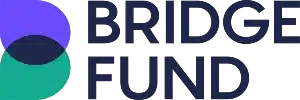
Amount
€ 5000 – 250.000
Term
6-36 months
Interest rate
Varies
Verified Company
Non-committal application
Apply in 5 minutes
Example: Loan amount €40,000. Loan term 24 months. Interest rate 1.3% per month. Weekly payment €504.62. Total repayment €52,480. Repayment per week €504.62. Fixed interest 0.5% + premium surcharge 0.8%.
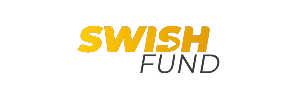
Amount
€ 5000 – 500.000
Term
3-24 months
Interest rate
1.0-2.3%
Verified Company
Fully English Site
In your account within 24 hours
Costs are based on your company’s risk profile. The one-time closing costs of 2% (minimum €650) are not included.
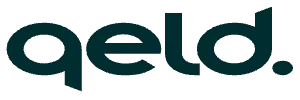
Amount
€ 1000 – 500.000
Term
1-18 months
Interest rate
Individual
Verified Company
Apply in 1 min
Payment within 24 hours

Amount
€ 1000 – 50.000
Term
1-36 months
Interest rate
2,4 %
Verified Company
5-star reviews
Quote same day
Example: Loan amount €19,000. Loan term 26 months. Interest rate 2.2%. Monthly payment €967.38. Interest & costs €236.61. Repayment per month €730.77. Total repayment €25,151.95.
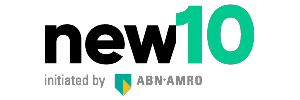
Amount
€ 20.000 – 1.000.000
Term
3-60 months
Interest rate
3.8-12%
Verified Company
Customized offer within 15 minutes
Payment within 24 hours
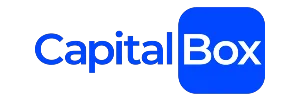
Amount
€ 5.000 – 500.000
Term
12-60 months
Interest rate
3,0 %
Verified Company
Apply in 1 min
Payment within 24 hours
Example: Loan amount €200,000. Loan term 36 months. Interest rate 3.0%. Monthly payment €8,414.25. Interest & costs €2,500.00. Repayment per month €5,914.25. Total repayment €302,912.95.
Looking for the best business loans in the Netherlands? Whether you’re launching a startup in Amsterdam or expanding an SME in Rotterdam, access to the right financing is critical. But with dozens of banks, fintech lenders, and private funding platforms offering business loans, how do you find the best match?
We break down your options—fast, clear, and without hidden agendas. We help you compare interest rates, terms, and eligibility so you can make confident decisions and secure funding that drives real growth.
Who Can Apply for Business Loans in the Netherlands?
Business loans in the Netherlands are available to a wide range of entrepreneurs—not just large companies. Whether you’re a startup founder, freelancer, sole trader, or run an SME, there are financing solutions tailored to your situation. Lenders assess different criteria depending on business type, revenue history, and sector. Understanding which category you fit into will help you find the most relevant business lending options.
Below, we break down the main borrower types and what you need to qualify.
SMEs (Small and Medium-Sized Enterprises)
SMEs are the backbone of the Dutch economy and typically have the broadest access to funding. They qualify for bank loans, term loans, credit lines, and government-backed SME business loans under programs like BMKB and GO. These loans are used to scale operations, hire staff, purchase equipment, or improve cash flow.
To be eligible, most lenders require 2+ years of trading history, a KvK registration, and minimum revenue around €50,000/year. SMEs with consistent income and a clear repayment capacity often secure longer loan terms and lower interest rates, making them highly attractive borrowers.
Startups
Startups in the Netherlands can also access funding, though traditional lenders tend to be more cautious. Startup business loans are typically smaller and may come with stricter conditions unless supported by innovation funds or investor backing. Financing is often used for MVP development, marketing, or early team building.
To qualify, startups usually need a detailed business plan, realistic projections, and in some cases personal guarantees. Government schemes and alternative lenders are more flexible, especially for tech and green startups.
Freelancers and ZZP’ers
Freelancers—referred to as ZZP’ers (Zelfstandigen Zonder Personeel)—can apply for small business loans or personal business credit to fund their self-employed activities. Loans are often used for equipment, software, or bridging cash flow gaps between contracts.
Lenders typically require at least 6–12 months of income history, KvK registration, and proof of invoice-based revenue. While loan amounts are smaller, often between €1,000 and €50,000, application processes are fast and usually don’t require collateral. This makes online business loans and fast credit NL options attractive for this group.
Learn more about ZZP loans for self employed.
Self-Employed Professionals and Sole Proprietors
Consultants, creatives, coaches, and other self-employed professionals also fall into the business loan ecosystem. These individuals often qualify for loans if they can prove stable earnings and long-term client contracts.
Lenders assess income consistency, industry stability, and financial planning. Professionals in sectors like healthcare, IT, or legal services may also access industry-specific financing products with more favorable terms. This group often uses loans for business expansion, training, or equipment upgrades.
Types of Business Loans in the Netherlands
There are several types of business loans available in the Netherlands, each tailored to different financing needs—whether it’s for growth, equipment, working capital, or stabilizing cash flow.
Understanding how each loan works helps you choose the right one based on your business model, urgency, and repayment ability. Below is a comparison followed by detailed explanations.
| Loan Type | Best For | Amount Range | Typical Term | Security Required | Approval Speed |
|---|---|---|---|---|---|
| Term Loan | Expansion, hiring, equipment | €5,000 – €500,000+ | 1–10 years | Often secured | Moderate (2–7 days) |
| Business Line of Credit | Cash flow, short-term needs | €2,000 – €250,000 | Revolving | Usually unsecured | Fast (same day possible) |
| Microloan | Freelancers, new or small businesses | €1,000 – €50,000 | 6–36 months | Unsecured | Fast (1–3 days) |
| Equipment Financing | Vehicles, machinery, tools | €10,000 – €1,000,000+ | 1–10 years | Secured by purchased asset | Moderate (3–5 days) |
| Invoice Financing | Late-paying B2B clients | Based on invoice value | 30–90 days | Secured by invoice | Fast (24–48 hours) |
| Government-Backed Loans | SMEs and startups with limited assets | Up to €1.5 million | Up to 6 years | Partial government guarantee | Moderate (5–10 days) |
Term Loan
A term loan is a fixed-amount loan with scheduled repayments over a defined period. It’s commonly used for expanding operations, buying inventory, or investing in staff and infrastructure. Offered by both banks and online lenders in the Netherlands, term loans remain the go-to option for SMEs with a solid financial history.
Collateral or personal guarantees are often required. Loan size, term, and interest rate depend on your credit profile, annual revenue, and loan purpose. Repayment terms typically range from 1 to 10 years.
Business Line of Credit
A business line of credit gives you flexible access to funds up to a pre-set limit. You draw what you need and only pay interest on the amount used. This is useful for handling seasonal dips, unexpected bills, or short-term opportunities.
Dutch lenders offer this to both SMEs and self-employed professionals. Many lines are unsecured, making approval faster, especially through online platforms. It’s a popular choice for businesses needing continuous, on-demand liquidity.
Microloan
A microloan is designed for small businesses, sole proprietors, and startups who don’t need large sums but still require working capital. These loans are easier to access than standard products and often come with shorter terms and quicker approval.
In the Netherlands, providers like Qredits offer loans up to €50,000, sometimes bundled with business coaching. Microloans help cover launch costs, software, marketing, or small equipment purchases.
Equipment Financing
This loan type is used to purchase physical assets like vehicles, machinery, or production tools. The equipment itself acts as collateral, which lowers the lender’s risk and can improve your loan conditions.
Ideal for logistics, agriculture, and construction sectors, these loans offer repayment terms that match the asset’s useful life. Some lenders also offer equipment leasing as an alternative.
Invoice Financing
If unpaid invoices are delaying your cash flow, invoice financing provides an advance on your outstanding receivables. You sell your invoices to a lender, who pays you 80–90% up front and collects the full amount from your client later.
This short-term funding method is popular with B2B companies. It’s not technically a loan since you’re using money already owed to you, making it a debt-free funding option that can be accessed quickly.
Government-Backed Loans (BMKB / GO)
To support small businesses with limited assets or high perceived risk, the Dutch government offers guarantee schemes like BMKB and GO. These programs allow businesses to access bank loans even if they don’t meet standard collateral requirements.
The state guarantees a portion of the loan, making it less risky for lenders. These loans are available through approved financial institutions and are often used for expansion, innovation, or recovery financing.
How to Apply for a Business Loan in the Netherlands
Applying for a business loan in the Netherlands requires planning, documentation, and knowing which loan fits your business needs. Whether you’re seeking a startup loan, SME financing, or a line of credit, understanding the process improves your approval odds and helps you avoid delays.
Here’s a quick overview of the main steps involved:
- Choose the right type of business loan
- Check eligibility requirements
- Gather required loan documents
- Compare business loan offers
- Submit application and wait for approval
Choose the Right Type of Business Loan
Before applying, clarify why you need financing. A term loan works best for large investments or expansion. A business line of credit suits ongoing expenses or fluctuating cash flow. For new businesses or sole proprietors, a microloan or government startup loan may be more suitable.
Selecting the wrong loan type can lead to rejection or unfavorable terms. Focus on what aligns with your repayment capacity and funding timeline.
Check Eligibility Requirements
Lenders in the Netherlands assess risk before offering business credit. Standard requirements include:
- Active business registered with the KvK (Kamer van Koophandel)
- Operating history of 6–24 months (depending on lender)
- Minimum annual turnover, often starting at €30,000–€50,000
- Business bank account in the Netherlands
- Valid ID and Dutch business address
Some lenders may also conduct a credit check or request a personal guarantee, especially for unsecured or short-term business loans.
Gather Required Loan Documents
Having your paperwork ready improves both approval speed and credibility. Most lenders ask for:
- KvK company registration extract
- Recent business bank statements (3–12 months)
- Profit and loss statement or annual financial report
- Business plan (especially for new businesses)
- Valid photo ID and proof of address for the business owner
Online lenders often require fewer documents, but traditional banks may request detailed financials and tax filings.
Compare Business Loan Offers
Loan terms vary widely by provider. Always compare:
- Interest rates (fixed or variable)
- Total cost of borrowing (including fees)
- Repayment flexibility and early repayment conditions
- Approval time and customer support
Use comparison tools or broker platforms if needed. Dutch businesses can choose between bank loans, online loans, government-backed financing, or private lenders.
Submit Application and Wait for Approval
After choosing a lender, complete the application process. This may include uploading documents, answering business questions, and verifying your identity.
Approval times vary:
- Online business loans: as fast as 24 hours
- Bank loans: 3 to 10 business days
- Government SME loans: 1 to 2 weeks
Once approved, the loan is usually deposited directly into your Dutch business account. Keep in mind that fast loans in the Netherlands may come with higher rates or shorter terms.
Business Loan Interest Rates in the Netherlands
Business loan interest rates in the Netherlands vary depending on the loan type, lender, risk profile, and whether the loan is secured or unsecured. Banks tend to offer lower rates but stricter conditions, while online lenders provide faster access but often at higher cost. Government-backed loans may offer favorable terms for SMEs and startups.
Below is a detailed comparison of typical interest rates and cost factors across various business loan types in the Netherlands:
| Loan Type | Interest Rate (Typical) | Rate Type | Secured? | Other Costs | Who It’s For |
|---|---|---|---|---|---|
| Term Loan (Bank) | 3.5% – 7% | Fixed or variable | Often secured | Application fee, early repayment fee | Established SMEs with solid financials |
| Term Loan (Online) | 6% – 14% | Fixed | Usually unsecured | Origination fee | Fast access for SMEs and freelancers |
| Business Line of Credit | 7% – 15% | Variable (monthly) | Usually unsecured | Monthly service fee | Businesses with irregular cash flow |
| Microloan (e.g. Qredits) | 6% – 9.75% | Fixed | Unsecured | Low admin fees, optional mentoring | Startups, freelancers, small businesses |
| Equipment Financing | 4% – 8% | Fixed | Secured by asset | Setup fees, insurance sometimes required | Businesses purchasing vehicles/machinery |
| Invoice Financing | 1% – 3% per 30 days | Variable (invoice-based) | Secured by invoice | Factoring fee (1–5% of invoice) | B2B businesses with long payment terms |
| Government-Backed Loans | 2% – 6% | Fixed or variable | Partially guaranteed | Admin fee, bank assessment fee | Startups and SMEs lacking collateral |
How Interest Rates Are Determined
Dutch lenders calculate business loan interest based on several key factors.
- Business age and revenue: Higher turnover and longer operation history reduce risk.
- Creditworthiness: Some lenders check business credit score or owner’s personal score.
- Loan term: Longer terms may carry lower monthly payments but higher total interest.
- Collateral: Secured loans offer better rates but require assets as security.
- Purpose of loan: Loans for assets or investments often get better terms than unsecured working capital.
Fixed vs Variable Interest Rates
- Fixed rates remain unchanged over the loan term. Ideal for budgeting and long-term stability.
- Variable rates can fluctuate based on market conditions or lender policies. Common for credit lines and invoice-based lending.
Effective APR and Hidden Costs
Always check the effective annual percentage rate (APR), which includes:
- Interest
- Origination or setup fees
- Monthly service charges
- Early repayment penalties (if applicable)
Some loans may appear low-cost but carry high total cost of borrowing, especially if repayment is spread over many months.
Secured vs Unsecured Business Loans
One of the most important distinctions in business financing is whether a loan is secured or unsecured. This affects not only your eligibility and approval speed, but also interest rates, loan amounts, and repayment terms. Understanding the difference helps you choose the most cost-effective and realistic loan for your situation.
What Is a Secured Business Loan?
A secured business loan requires the borrower to offer collateral—such as company assets, property, vehicles, or equipment. If the business fails to repay the loan, the lender can claim the asset to recover losses.
Typical features of secured loans in the Netherlands:
- Lower interest rates (3%–7%)
- Larger loan amounts (up to €1.5 million or more)
- Longer repayment periods (up to 10 years)
- Used for major investments like machinery, real estate, or large expansion
Secured loans are often issued by banks or under government-backed schemes like BMKB or GO. However, they involve a more extensive approval process, valuation of assets, and legal documentation.
What Is an Unsecured Business Loan?
An unsecured loan does not require collateral. Instead, approval is based on your credit profile, business revenue, and time in operation. Because the risk to the lender is higher, unsecured loans tend to have higher interest rates and shorter terms.
Typical features of unsecured loans in the Netherlands:
- Faster approval (often within 1–3 days)
- Loan amounts up to €250,000
- Higher rates (6%–15%) depending on the lender
- Suitable for cash flow gaps, inventory purchases, or marketing campaigns
Unsecured loans are commonly offered by online lenders and are popular with freelancers, ZZP’ers, and early-stage startups that don’t own significant assets.
Which Option Is Better?
| Criteria | Secured Loan | Unsecured Loan |
|---|---|---|
| Collateral required | Yes | No |
| Interest rates | Lower (3%–7%) | Higher (6%–15%) |
| Loan amount | Higher (€100K–€1.5M+) | Lower (€1K–€250K) |
| Approval time | Slower (5–10 business days) | Faster (1–3 business days) |
| Best for | Expansion, equipment, long-term projects | Working capital, short-term cash needs |
| Risk to borrower | Asset may be repossessed if unpaid | Personal liability if defaulted |
If you own valuable business assets and want better rates, a secured loan may be the smarter route. But if you need fast access to capital with minimal paperwork, an unsecured business loan offers speed and flexibility.
How Much Can You Borrow with a Business Loan in the Netherlands?
One of the most common questions for entrepreneurs is: how large a business loan can I get in the Netherlands? The answer depends on several factors, including your business type, revenue, loan purpose, and whether the loan is secured or unsecured.
Typical Loan Amounts by Loan Type
| Loan Type | Typical Loan Range | Maximum Amount |
|---|---|---|
| Microloan | €1,000 – €50,000 | €50,000 |
| Unsecured Online Loan | €2,000 – €250,000 | €250,000 |
| Business Line of Credit | €5,000 – €150,000 | €250,000 |
| Secured Term Loan (Bank) | €25,000 – €500,000+ | €1 million+ |
| Equipment Financing | €10,000 – €1,000,000+ | Based on asset value |
| Government-Backed Loan | €50,000 – €1.5 million | €1.5 million (GO program) |
| Invoice Financing | Based on invoice volume | No fixed max (case-by-case) |
What Determines Your Borrowing Capacity?
Lenders evaluate your business based on:
- Revenue: Higher annual turnover allows for larger loan amounts.
- Profit margins: Strong net income shows you can repay the loan.
- Time in business: Lenders often require at least 6–24 months of operations.
- Collateral: Secured loans let you borrow more by reducing lender risk.
- Debt-to-income ratio: If you have existing loans, this may limit your capacity.
- Loan purpose: Strategic investments (e.g. equipment, hiring) can justify larger loans.
Realistic Expectations
- Freelancers and new businesses: Can expect approval in the range of €5,000 to €50,000, especially if applying without collateral.
- Established SMEs: May qualify for €100,000 to €500,000+ if financials are solid.
- Asset-heavy businesses: Can access €1 million or more through secured equipment loans or commercial property finance.
Keep in mind that asking for more than you can repay will either result in rejection or higher rates. It’s often better to borrow only what your cash flow can support—especially if you’re applying for short-term or fast business loans.
Tips for Choosing the Right Business Loan
Choosing the right business loan starts with a clear understanding of your needs. Ask yourself what the loan is for—equipment, payroll, marketing, working capital? The purpose should match the loan type. For example, use term loans for long-term investments and credit lines for short-term or recurring needs. Avoid using long-term loans to cover temporary cash gaps.
Next, compare offers not just on interest rates, but on total cost—including setup fees, service charges, and early repayment penalties. Look at the APR rather than the nominal rate to get a full picture. A slightly higher rate with flexible repayment terms can be a better deal than a lower rate with strict conditions.
Timing matters too. If you need fast funding, online lenders or invoice financing can provide approval in 1–3 days. Traditional banks and government-backed SME loans offer lower rates but take longer to process—often 1–2 weeks.
Be realistic about your eligibility. Applying for the wrong product wastes time and can hurt your credit standing. If you’re a startup or freelancer, look into microloans or unsecured online loans before approaching banks.
Finally, always match the loan term to the return period of your investment. Don’t fund short campaigns or one-off expenses with multi-year loans. That kind of mismatch can strain your cash flow and increase your repayment risk.
FAQ
Frequently Asked Questions
You need a registered business (KvK), a Dutch bank account, and usually 6–12 months of revenue history. Some lenders also require minimum annual turnover and ID verification. Startups may need a business plan and projections.
Yes. Many online lenders offer unsecured business loans up to €250,000. These are based on your revenue, creditworthiness, and time in business. Rates are higher than secured loans but approval is faster.
Rates typically range from 3% to 15%, depending on the loan type, lender, and whether it’s secured. Government-backed loans and bank term loans have the lowest rates. Online and short-term loans are more expensive.
Online loans and invoice financing can be approved in 24–72 hours. Bank loans and government schemes usually take 5–10 business days. Preparation and complete documentation speed up the process.
Yes. Freelancers and sole traders are eligible for microloans, online credit lines, and some bank products. You’ll need proof of income, KvK registration, and typically 6+ months of self-employment.
Yes. The BMKB and GO programs offer partial guarantees on loans issued through banks. They support startups, SMEs, and businesses with limited collateral. Application goes through participating financial institutions.
Loan amounts vary by type. Microloans go up to €50,000, unsecured loans up to €250,000, and secured or government-backed loans up to €1.5 million. Your revenue and risk profile determine the limit.
Yes—if your business is registered in the Netherlands and you have legal residence, a KvK number, and a Dutch bank account. Some banks may require additional checks, but many fintech lenders are expat-friendly.
